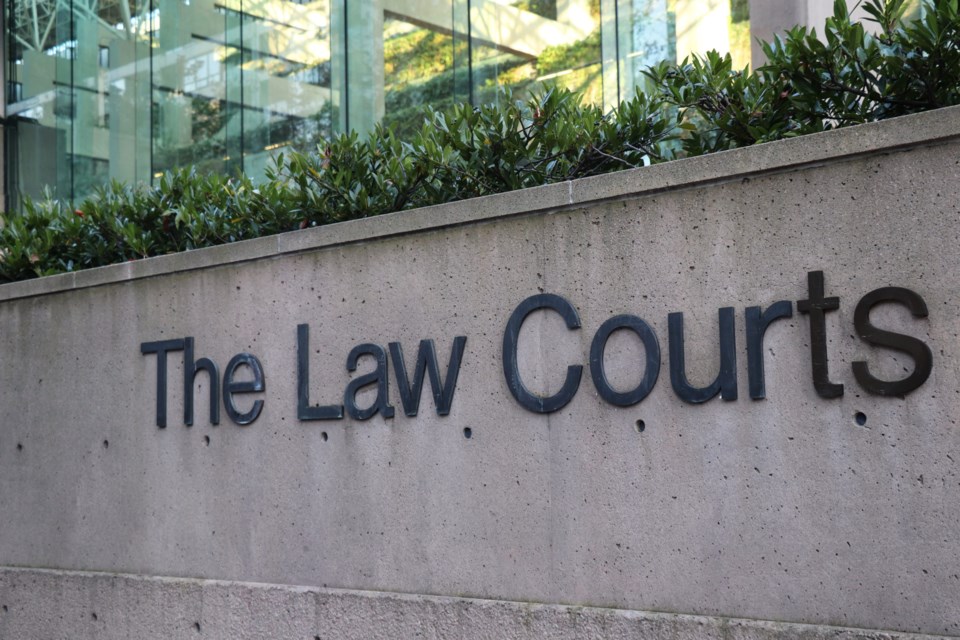The B.C. government is giving ground just before the contentious issue of public health restrictions versus freedom of religion is set to be heard in court.
Provincial Health Officer Dr. Bonnie Henry has issued a “variance” to her public health orders that will allow three Fraser Valley churches currently suing the province to hold outdoor in-person worship services to a maximum of 25 people, according to a report in The Vancouver Sun on Sunday.
It’s a clear attempt to soften the government’s position as it readies for what will be a precedent-setting round of court proceedings beginning this week.
The issue is whether the province’s public health orders banning in-person church gatherings violate the protected freedom of religion enshrined in Canada’s Charter of Right and Freedoms.
The three churches - Riverside Calvary Chapel in Langley, Free Reformed Church in Chilliwack and Immanuel Covenant Reformed Church in Abbotsford - have been flagrantly disregarding the public health orders and holding in-person worship services since late last year.
If the goal was to find a middle ground with the churches to head off the court battle, it didn’t work.
A lawyer for the churches told the Sun that the court challenge will proceed in B.C. Supreme Court on Monday.
The government is nervous of that battle, it would seem.
It has already suffered one loss in Supreme Court earlier this month, when that court tossed out a request for a court injunction to shut the churches down.
Chief Justice Christopher Hinkson chastised Dr. Henry and the government for not ramping up enforcement methods already available to them – including fines, arrests and imprisonment – before appealing for the court’s intervention.
The government has been loath to actually charge any parishioner, priest or faith leader with violating the public health orders, perhaps knowing the image of police leading worshipers out in handcuffs would result in an entirely new and more vigorous round of criticism and court challenges.
B.C.’s Crown prosecutors have already declined to charge anyone with breaking the rules, after a visit in December by Chilliwack RCMP.
“I shouldn’t be doing Dr. Henry’s job,” the chief justice said earlier in the proceedings.
That inaction caused Chief Justice Hinkson to warn the province and Dr. Henry that they should try enforcing their own rules first. If they are uncomfortable doing that, he added, they are perfectly capable of changing the COVID law, cabinet orders, and public health orders that set out the current system of fines and imprisonment for violators.
“I shouldn’t be doing Dr. Henry’s job,” the chief justice said earlier in the proceedings. “If she wants police to have the ability to arrest people, the order can be amended, can’t it?”
The orders were never amended.
Instead, B.C. offered the olive branch of outside worship. With that done, all that’s left is to prepare for the fight in court.
The challenge will be fascinating to watch.
On the one hand, the churches say the public health orders banning in-person worship should be quashed because they violate section 2 of the Charter, which ensures freedom of speech, assembly, belief and religion.
They’ve publicly stated they are adhering to rules regarding masks, sanitization, and social distancing between family units inside the church – and don’t see why they are unable to hold sermons when restaurants, grocery stores and other businesses have remained open to the public.
B.C. is counting on the court to deem the largest public health crisis in recent history as substantial – or substantial enough.
On the other hand, the government argues that section 1 of the Charter allows it to infringe on those rights to “reasonable limits prescribed by law as can be demonstrably justified in a free and democratic society.” Practically, that means a sufficiently important pressing and substantial concern. B.C. is counting on the court to deem the largest public health crisis in recent history as substantial – or substantial enough.
The issue of whether the pandemic is a justifiable excuse for government to limit a person’s Charter rights came up last year in Newfoundland and Labrador.
That province had joined the so-called “Atlantic Bubble,” which banned entry to anyone not an essential worker and mandated a self-imposed quarantine on others.
The Charter protects a person’s mobility right to move between any province. A woman who was blocked from attending her mother’s funeral ended up taking the province to court, arguing her constitutional rights had been violated.
The Newfoundland court was clear: COVID-19 was a pressing and substantial concern, the government was trying to save lives with its laws and “the collective benefit to the province as a whole must prevail.” The challenge was tossed aside.
“The courts do not have the specialized expertise to second guess the decisions of public health officials,” the judge ruled.
Who knows if B.C.’s Supreme Court will take the same tack.
It’s the first time British Columbia has had to handle such a debate since the pandemic began. But given the slow pace of our vaccination schedule, it’s likely not the last. This week’s court proceedings could have ramifications for months to come.
Rob Shaw has spent more than 13 years covering BC politics, now reporting for CHEK News and writing for The Orca. He is the co-author of the national best-selling book A Matter of Confidence, and a regular guest on CBC Radio.
SWIM ON:
- Rob Shaw last wrote about Site C, and the decision to keep moving forward (again.) From this point forward, it's the NDP's issue and the NDP's issue alone.
- Suzanne Anton also looked at the argument between the three Fraser Valley churches and the provincial government, and explained the Chief Justice's reasoning in denying an injunction. Which brings us to the Supreme Court hearing discussed above.
- Ada Slivinski speaks to the sense of emptiness and loss felt by many people of faith, for whom the pandemic has meant foregoing an essential part of their lives.



